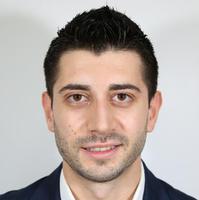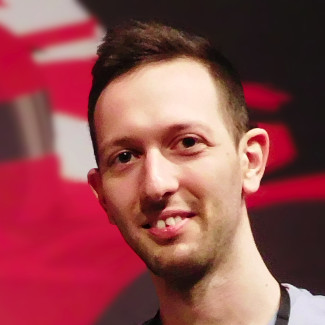
Welcome to our interview series with the partners running Better Factory. Today we are lucky to be joined by two of our all-star team, Michele Fiorello and Vincenzo Cutrona, to learn more about SUPSI and their role in the project!

Michele Fiorello joined the SUPSI team 2 years ago as a Scientific Collaborator. He worked first as Analyst Consultant at Capgemini Italia and then as Project Control Process & System Junior Engineer at Tecnimont.
Vincenzo Cutrona joined the SUPSI team 1 year ago as a post-doc researcher, right after finishing a PhD in Computer Science at the University of Milano-Bicocca. His main interests are in data integration and enrichment, knowledge representation, and Semantic Web technologies.

Thank you for joining us today! Please could you give us a short introduction to SUPSI, and your role there, in your own words?
The University of Applied Sciences and Arts of Southern Switzerland (SUPSI) is one of the nine professional universities recognised by the Swiss Confederation. SUPSI offers Bachelor’s Degree and Master’s Degree courses, characterised by cutting edge education which unites classical theoretical-scientific instruction with a professional orientation. Research at SUPSI covers key sectors on competitively acquired projects with large European and national agencies or mandated by organisations and institutions.
Our role in Better Factory is to provide SMEs with cognitive-enhanced tools (namely, the Fatigue Monitoring System and the Intervention Manager), which help improve workers’ well-being at the factory. Within the project, we’re also involved in the implementation of 2 Knowledge Transfer Experiments, where we’re supporting two small consortia in adopting the above mentioned assets for fulfilling their needs.
Thank you! To someone reading this who has never heard of Better Factory before, how would you describe it in simple terms, and why do you feel it is significant?
Better Factory is the project aimed at empowering the customization rate of European manufacturing SMEs through innovative digital solutions provided by the RAMP platform. Moreover, the project creates synergies among different competences, indeed it involves tech suppliers, manufacturers, and artists. In this way the project helps SMEs also to enlarge their product portfolio, which is very valuable also beyond the project end.
As one of the nine professional universities recognised by the Swiss Confederation, SUPSI is providing tech-based support to the teams as they resolve technical issues and think ‘out-of-the-box’ during their KTE (Knowledge Transfer Experiment) preparation. Could you tell us about what you expect for this next round of open call participants, and do you already have any advice for them?
SUPSI provides support for issues related to the Cognitive Human-Robot Interaction scenario, where humans are monitored to improve their well-being at work. During the first round of open calls, the cognitive scenario has been partially employed by just a few participants, mostly because many SMEs don’t have collaborative robots, and in most of the cases the involved processes were not re-configurable. Therefore, considering these premises, we expect the next open call’s participants to be more ready to shift their current production processes to the collaborative paradigm (it means the conjunction among humans and machines with the aim of supporting the workers, not replacing them).
Better Factory is the project aimed at empowering the customization rate of European manufacturing SMEs through innovative digital solutions provided by the RAMP platform.
What are you personally most excited about achieving with Better Factory?
Looking at real environments that actually adopted our assets, solving real problems and improving workers’ conditions. Beyond the project end, we believe these two KTEs will represent two great success stories for our research group.
The RAMP platform is a key element of Better Factory which will live on beyond the project end. How do you see the future of the RAMP platform, from a technical perspective?
The future releases of RAMP (currently available in beta version) should be marked by a greater accessibility, but above all, by an easier user experience. Moreover, it should be ready to integrate tools uploaded in third-party registries (e.g., private Docker registries). This would spread its adoption a lot.
If you’d like to learn more about our partners or KTEs, just head back to the Insights section to read more interviews!



